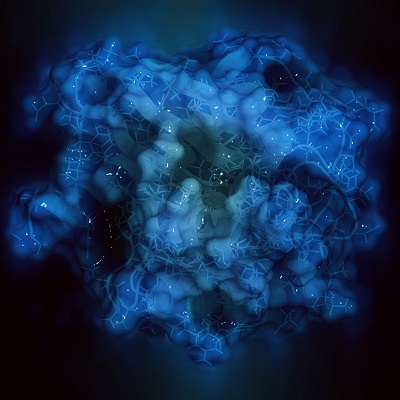September 2, 2022 -- Using cryo-electron microscopy, researchers at the Spanish National Cancer Research Center (CNIO) and the University of Copenhagen have determined the structure of the RAF1 protein, a therapeutic target against cancers associated with KRAS oncogenes that when mutated have the potential to cause normal cells to become cancerous.
According to the researchers, their study -- published September 1 in the journal Molecular Cell -- makes it possible to identify structural vulnerabilities in RAF1, a key step to design drugs capable of destroying it with "degraders" that, either alone or in combination with KRAS inhibitors, could generate an important therapeutic effect in patients with lung adenocarcinoma induced by KRAS oncogenes.
"The creation of RAF1 degraders is a realistic option to put these experimental results into clinical practice, and thus be able to combat these tumors with new therapeutic weapons in the not-too-distant future," Sara García-Alonso, PhD, a CNIO researcher and co-lead author of the study, said in a statement. "A window of opportunity is now open to design RAF1 degraders with an important therapeutic effect in patients with lung adenocarcinoma induced by KRAS oncogenes."
Lung adenocarcinoma, the most common primary lung cancer in the U.S., falls under the umbrella of non-small cell lung cancer and has a strong association with previous smoking. While incidence and mortality have declined, it remains the leading cause of cancer death in the U.S.
Copyright © 2022 scienceboard.net







